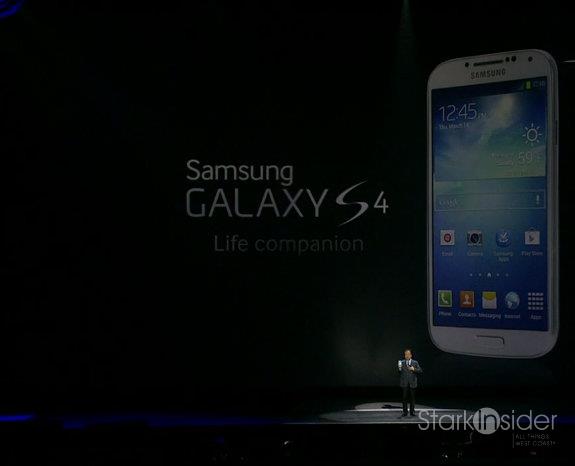
Google and Samsung product launches are the yin and yang of tech. If Google events are targeted squarely at developers and tech blogs, than Samsung events are aimed at mainstream consumers, and (apparently) floozy partiers.
Google loves talking about algorithms and solving problems of scale.
Samsung loves talking about features and giving smartphone buyers everything but the kitchen sink.
I’m not so sure yesterday’s Galaxy S4 launch event was a historic moment for theater – it was definitely over-the-top, certainly cheesy, and possibly even sexist as many are suggesting – but it was interesting to observe the far, far different tack Samsung management took in unveiling their flagship device.
Whereas Nexus launches are predominantly a spec love-in, Galaxy launches are a features parade.
The approaches speak not only to the divergent cultures of the two companies — on a Silicon Valley tech giant, the other a South Korean tech giant — but also to the different marketing strategies each is taking to compete with Apple. Google is increasingly relying on a direct-to-consumer play. Nexus devices are sold unlocked on its own web site. There’s no contract. And the devices ship bloat free, with no skins such as TouchWiz or Sense, and no unnecessary apps piled on. Samsung evidently feels that the stock Android experience is either too complicated, or not powerful enough to satisfy consumer’s needs, or both. Hence, the never-ending hit-list of additive software from the Samsung labs: dual video, S Health, eye tracking, IR remote, and on and on.
That they’re partners and competitors adds an interesting twist. Samsung never mentioned “Google” or “Android” in its presentation yesterday, and, yet, without the Android operating system, there could be no Galaxy success story. Meanwhile, though Samsung was instrumental in bootstrapping the Nexus brand in the early days, Google is now turning to other manufacturers. Last year it was LG. This year it could be LG again, or, as many are predicting, possibly Motorola will make a welcome appearance as the -in-house manufacturer of the flagship Nexus phone (X Phone?).
But there’s something Samsung has yet to learn from Apple (and the Steve Jobs legacy), and that is:
It’s not about touting every single new feature in a product. It’s about finding that one must-have, drool-worthy thing and shaping an entire marketing campaign solely around it.
At the end of the Samsung Galaxy S4 event, my head was spinning. First, the format was a mess – kind of like a South Korean version of the Academy Awards mashed-up with an entertainment-free episode of Glee. And amongst all the flat, scripted lines there was a new phone. But for the life of me I can’t think of one defining feature of the S4 that makes me want to kick my Nexus 4 to the curb.
That’s markedly different than an Apple (or even Google) launch.
When you walk out of an Apple launch, your heart is pumping, pupils dilated…
Retina display! Must have!
Thunderbolt! Must have!
Siri! Must have!
Steve Jobs had a gift for cranking the emotional factor to eleven.
Samsung appears content to go with the law of averages. Give ’em everything but the kitchen sink; hopefully something will stick.
Granted, with the success of the Galaxy S3 why mess with a good thing?
Next up: Google at I/O
We’re sailing through Q1 2013, and two of the three majors have unveiled their flagship Android phones.
HTC unveiled One. It’s a beauty. Unfortunately it won’t sell. HTC’s issue isn’t hardware design – they’re top of the heap – but marketing.
And Samsung unveiled the S4. By all accounts it’s impressive. Evolutionary in the grand scheme. Nevertheless the ante has been upped.
Next it’s Google’s turn at its I/O developer conference in May. All eyes will be on the Moscone Center in San Francisco. Spectacle will ensue. Who can forget last year’s astonishing Google Glass skydiving demo?

